SUBMIT YOUR ABSTRACTS FOR 2024 ANNUAL MEETING

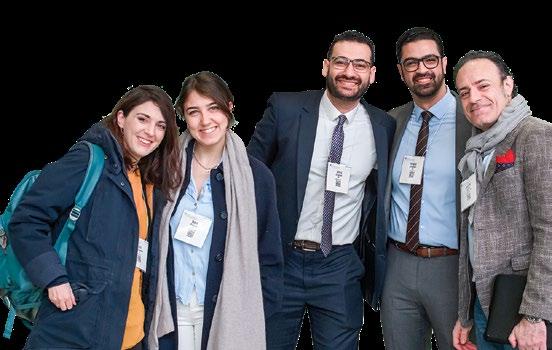
Last Day to Submit Is October 17
The deadline to submit abstracts for the 2024 Annual Meeting is 11:59 p.m. CT on October 17, 2023. Visit AAN.com/AMAbstracts now to submit your research for the chance to present your findings at the place for showcasing the most exciting transformative research and innovative advancements spanning the globe. The Annual Meeting extends the reach of your findings, setting the stage for your future research opportunities and allowing you to share your work within and beyond your subspecialty. Abstracts are sought in all subspecialties and career levels and are allowed to have been previously presented or published. The non-refundable submission fee is $125 for AAN members, $225 for nonmembers, and is free for residents and medical students. Contact Katie Anderson at science @ aan.com with questions.
New Anti-amyloid Therapies Highlighted at This Month’s Fall Conference




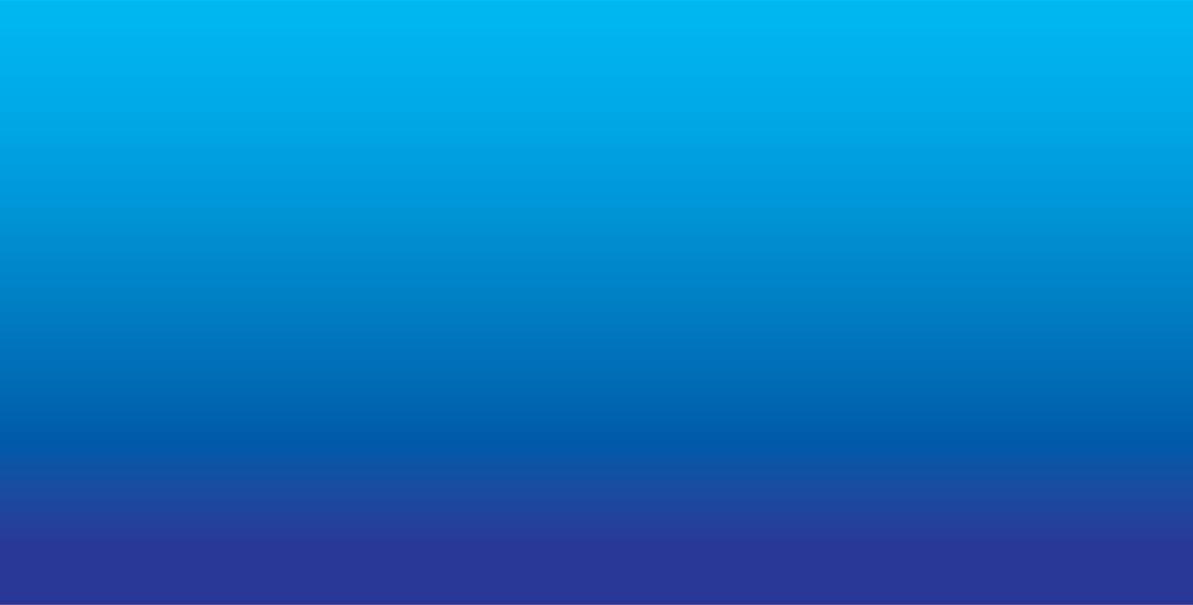
It’s not too late to register for the Fall Conference and join the newly added Anti-amyloid Therapy Boot Camp taking place Saturday, October 28 from 1:00 p.m. to 4:30 p.m. PT. Offered both in person and online, participants will appraise major findings from recent clinical trials of antiamyloid monoclonal antibody therapies, understand imaging and fluid biomarkers relevant for treatment eligibility, identify proposed clinical criteria for appropriate use, and more.
Continued on page 5 ›
Denver and Online • April 13 –18
'Bold and Unapologetic': How Foundation Became Pillar of Neurology Research, Education
In 1989, AAN President Elect Roger N. Rosenberg, MD, FAAN, seized the upcoming Decade of the Brain as a catalyst for a new and exciting opportunity. He wrote to then-president Lewis P. Rowland, MD, FAAN, that with neurology at the threshold of great advancement, the AAN was in a unique position to raise funds for research. Neuroscience was at the brink of discovery—the most noteworthy being the imminent revelation of prions. Alzheimer’s, MS, Parkinson’s, and epilepsy patients were likewise benefiting from new research. Anti-epilepsy drugs were about to enjoy a renaissance, becoming more sophisticated and targeted in their treatment. With neurologic care being fine-tuned by breakthroughs, the idea that cures to these devastating and costly conditions might someday soon be delivered was exhilarating.
Continued on page 9 ›
7 November 2 Is Deadline to Apply for 2024–2025 Health Care Equity Program 5 BrainPAC Is Strong Advocacy Tool for Neurology, Patients, Caregivers 6 AAN Recommendations for 2023–2024 Residency, Fellowship Application Cycle VOLUME 35 ISSUE 10 OCTOBER 2023
AAN.com/Fall • #AANFC October 27–29 Las Vegas and Online
Annual Meeting
The Mission of the AAN is to promote the highest quality patient-centered neurologic care and enhance member career satisfaction.
The Vision of the AAN is to be indispensable to our members.
Contact Information
American Academy of Neurology 201 Chicago Avenue
Minneapolis, MN 55415
Phone: (800) 879-1960 (toll free) (612) 928-6000 (international)
Email: memberservices@ aan.com
Website: AAN.com
For advertising rates, contact: Sharon Ames
Sr. Account/Relationship Executive
Wolters Kluwer
Phone: (516) 993-7800
Email: sharon.ames @ wolterskluwer.com
October Highlights
6
AAN Recommendations for 2023–2024 Residency, Fellowship Application Cycle
A new consensus statement from the AAN provides valuable information for programs and applicants alike. “We get such high-quality applicants wanting to become neurologists, and it's really just a matter of finding which program is right for them,” said Erica A. Schuyler, MD, FAAN.
8 Meet Your New Board Member: José H. Posas, MD, FAAN
Posas, a sports neurologist, describes how volunteering with the AAN helped him better serve patients and build a deeper connection with his colleagues.
13 Diversity Leadership Program Graduate Selected Among New Obama Foundation Leaders
Nicte Itzel Mejia Gonzalez, MD, MPH, FAAN, is embarking on a new journey. Learn abut her impressive leadership accomplishments—and why she describes the AAN’s Diversity Leadership Program as “transformational.”
AAN Chief Executive Officer: Mary E. Post, MBA, CAE

Capitol Hill Report
Editor-in-Chief: Melissa W. Ko, MD, MBA, CPE, FAAN

Managing Editor: Angela M. Babb, MS, CAE, APR
Editor: Val Lick
Writers: Ryan Knoke and Sarah Parsons
Designer: Siu Lee
Email: aannews@ aan.com
AANnews® is published monthly by the American Academy of Neurology for its 40,000 members worldwide. Access this magazine and other AAN publications online at AAN.com.
The American Academy of Neurology ’s registered trademarks and service marks are registered in the United States and various other countries around the world.
“American Brain Foundation” is a registered service mark of the American Brain Foundation and is registered in the United States.
The inclusion of advertisements and/or promotions of Sponsors and other Internet sites or resources that offer content, goods, or services on the Website does not imply endorsement of the advertised/promoted products or services by AAN.
Capitol Hill Report, which presents important news from the AAN’s advocacy efforts, is emailed to US members twice monthly and is posted at AAN.com/view/HillReport Below are some recent highlights.
The AAN submitted comments last month in in response to the 2024 Medicare Physician Fee Schedule rule proposed by the Centers for Medicare and Medicaid Services (CMS). CMS is projecting a one-percent increase in payments to neurology and—due to statutory budget neutrality measures and the phase-out of temporary relief measures—a reduction in the Fee Schedule conversion factor of approximately 3.4 percent. The AAN is committed to advocacy efforts that ensure neurologists’ work is appropriately valued.
The AAN’s comments address changes that would impact evaluation and management services, such as the proposed implementation of an add-on code to better account for the work associated with caring for complex patients and a proposed delay in implementation of changes impacting split or shared billing that will have detrimental impacts on team-based care.
The AAN also provided feedback on changes to existing telehealth policies, proposed modifications to the list of services on the Medicare Telehealth list, and continued flexibility relating to direct supervision of staff and residents. In a significant win for AAN advocacy, CMS is proposing to retire the appropriate use criteria program and rescind all implementing regulations. The AAN also provided the agency with robust feedback on the future of the Quality Payment Program and reporting requirements.
Other recent AAN advocacy efforts include sending letters in support of the Conrad State 30 and Physician Access Reauthorization Act as well as the Long COVID Support Act Letter.
AANnews · October 2023
A Brighter Brain Future: New Vision Set for Brain Health by 2050
Neurologists are uniquely positioned to assume leadership in brain health, and your Academy continues to play a principal role in defining brain health and convening the many stakeholders involved in educating and engaging the public on the importance of maintaining a healthy brain. Now the AAN is sharing its vision for brain health by 2050.
This vision foresees a 2050 where:
Brain health research leads to scientific breakthroughs
Preventive neurology is a thriving cross-disciplinary field
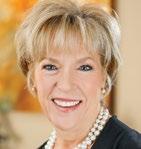
Brain health practice guidelines are available for all ages
Brain health visits are a standard of care
Brain health education is widely available
A national brain health plan guides research, care, and public engagement
This vision is part of a new AAN position statement and platform on brain health published online in Neurology® on September 20, 2023, and shared with the media and the public through a press release just ahead of the AAN’s second Brain Health Summit, held on September 21 in Washington, DC. The summit brought together close to 150 leaders in brain health representing academia and research, professional medical and patient organizations, government agencies, biopharmaceutical and tech sector, health care administration, and advocacy groups.
Led by David A. Evans, MBA, and Natalia S. Rost, MD, MPH, FAAN, FAHA, of the AAN Committee on Public Engagement, the theme of the summit was “collaboration,” with the goal of fostering engaging and dynamic conversations and establishing connections among stakeholders to create synergies and take action on the top priorities in the field of brain health.
The AAN’s definition of brain health is a continuous state of attaining and maintaining the optimal neurologic function that best supports one’s physical, mental, and social well-being through every stage of life.
The position statement explains that brain health is crucial to optimizing both the function and well-being of every person at each stage of life and is key to both individual and social progress. The ambitious goals of the platform call for accelerating scientific discovery in brain health through cross-disciplinary collaboration, optimizing brain health through integration of preventive care practices, and enhancing public and patient engagement to advance public policy in this area.
We will work to expand the reach of the summit, encouraging increased public awareness of brain health and supporting efforts to study and develop better treatments to improve brain health.
We also took advantage of the energy and enthusiasm of this event by scheduling the AAN Legislative Summit the following day in Washington, with many AAN members who attended the summit also advocating with their legislators for improved access to brain health care.
The AAN has promoted brain health for decades through its advocacy and public outreach, which includes the AAN’s free patient and caregiver magazines, Brain & Life® and Brain & Life® en Espanol, that collectively reach over 1.5M readers, BrainandLife.org, the Brain & Life book series, and the Brain & Life podcast. We are proud to stand united with a coalition of multidisciplinary stakeholders as we pursue a plan to improve brain health across each stage of life.
I want to thank all of those involved—and to call on all of you to join in this work to accomplish our ultimate goal of reducing the burden of neurologic disorders and developing a public health response for achieving optimal brain health for everyone.
Carlayne E. Jackson, MD, FAAN President, AAN cjackson@aan.com @CarlayneJackson on Twitter
A ANnews • October 2023 3 PRESIDENT'S COLUMN
Jackson
Jeffrey C. McClean, II, MD, FAAN Chair, Leadership Development Committee
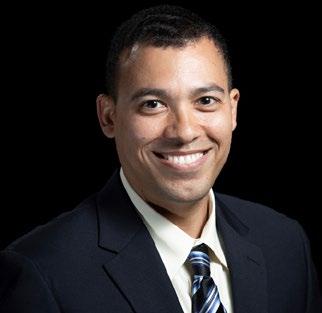
“To help promote the highest quality patient-centered neurologic care and member satisfaction, the AAN has committed to proactively identifying and training tomorrow’s leaders today. A sincere thank you to industry partners who help make the AAN Leadership Development Programs possible.”
Thank you to the supporters of the 2022–2023 Leadership Development Program
Advocate Level
$100,000+
Benefactor Level
$50,000 to $99,999
Associate Level
$25,000 to $49,999
Cerevel Therapeutics

Eisai, Inc.
Friend Level
$10,000 to $24,999
Alnylam Pharmaceuticals

Horizon Therapeutics

Lilly
MERZ Therapeutics
Supernus Pharmaceuticals, Inc.
LivaNova PLC
Neurocrine Biosciences, Inc.




AAN LEADERSHIP DEVELOPMENT AAN.com/LEAD
BrainPAC Is Strong Advocacy Tool for Neurology, Patients, Caregivers



In 2007, the AAN launched the only federal political action committee in Washington, DC, that specifically represents the profession of neurology. BrainPAC is an essential tool in educating federal legislators about critical issues facing neurology, our patients, and our practice. By raising and distributing contributions to support neurology-friendly candidates to the US Congress, BrainPAC helps give us a strong voice on Capitol Hill.
BrainPAC collects funds from AAN members who are US citizens and permanent residents. These funds go directly to elect or re-elect members of Congress who support neurology and have a strategic value to the AAN’s policy goals on a bipartisan basis. Regardless of which political party controls Congress, it is important to maintain a strong relationship with committee leadership, which is why we continue to support those who support us.
Some of the AAN’s most recent legislative and regulatory wins include:
Eliminated 3/4 of the scheduled 8.5-percent Medicare physician reimbursement cuts for 2023
Extended Medicare telehealth flexibilities through December 31, 2024, including for audio only
Congress enacted legislation allowing Medicare to directly negotiate the price for high-cost prescription drugs and limiting Part D out-of-pocket costs to a maximum of $2,000/year and limiting future increases to the rate of inflation
The Improving Seniors Timely Access to Care Act, which would streamline the prior authorization process for individuals on Medicare Advantage plans, passed the House for the first time since its introduction
The Safe Step Act, which would set up guard rails for step therapy, or “fail first” requirements, received the most cosponsors in the House and Senate since it was introduced
Government funding bills for FY 2022 and 2023 included significant increases to the National Institutes of Health and the BRAIN Initiative
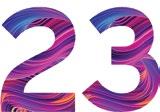
Congress approved 200 new federally funded GME slots
The Conrad 30 Waiver program was reauthorized
Congress enacted AAN-supported reforms to enhance diversity in clinical trials
At the AAN’s urging, Congress provided an additional $9 million in support for the VA Neurology Centers of Excellence that focus on epilepsy, headache, MS, and Parkinson’s disease
Visit brainpac.org to learn more about how you can get involved.
Therapies Highlighted at This Month’s Fall Conference continued from cover
New Anti-amyloid
Visit AAN.com/Fall today to learn more and to secure your spot for the Fall Conference’s three days of programming covering the latest updates in the science and practice of neurology, plus up to 51.5 valuable end-of-year CME!
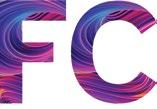
Add On Demand for an Even Better Value—And Extended Access
Gain extended access to session recordings, program materials, and ability to claim CME through August 1, 2024, by adding Fall Conference On Demand to your registration for a savings of up to 55-percent off the standalone On Demand price.
A ANnews • October 2023 5 ADVOCACY EVENTS
October 27–29 Las Vegas and Online
AAN Recommendations for 2023–2024 Residency, Fellowship Application Cycle
The residency and fellowship application cycle is no doubt a stressful time for applicants— and a busy time for programs around the world. A new consensus statement from the AAN provides valuable information for programs and applicants alike, including a recommendation that all neurology and child neurology residency and fellowship programs once again commit to virtual interviews for all candidates in the 2023–2024 application cycle. The AAN joins the Association of American Medical Colleges and other institutions that have made similar recommendations for the upcoming cycle.
Initially introduced to maintain safety during the COVID-19 pandemic, the
virtual interview format has been shown to boost equity and reduce financial burden, with data pointing to its effectiveness for matchmaking as comparable to in-person interviews—at a fraction of the cost.
Lead statement author Erica A. Schuyler, MD, FAAN, said applicants preparing for virtual interviews don’t need to pay for travel or spend significant time away from their research, clinical activities, and families. Similarly, programs save money that might otherwise be spent on lodging and meals with candidates. “Everybody can have equal access to the different programs,” she said. “It's not limited based on financial ability to travel.”
Additionally, the AAN’s statement contains guidelines for programs in areas such as “second looks,” away programs, the updated Electronic Residency Application Service (ERAS) platform, and holistic review strategies. Applicants can also find useful information and advice, such as choosing how many applications to send—an area where many feel pressure. “We have so many great programs that provide really outstanding training,” Schuyler said. “We get such highquality applicants wanting to become neurologists, and it's really just a matter of finding which program is right for them.”
The AAN’s “Statement on 2023–2024 Residency/Fellowship Application Cycle” is available at AAN.com/tools-resources/ program-director-resources
Peripheral Nerve and Motor Neuron Disorders Explored in Continuum
The latest information on peripheral nerve and motor neuron disorders is presented in the October issue of Continuum: Lifelong Learning in Neurology®
“There has been an explosion of therapeutic development in the motor neuron diseases, both in spinal muscular atrophy and amyotrophic lateral sclerosis over the past several years,” said Guest Editor Kelly Gwathmey, MD.
“These treatments change the trajectory of motor neuron degeneration and resultantly improve clinical outcomes.”
Topics in this Continuum® issue include:
Localization and Diagnostic Evaluation of Peripheral Nerve Disorders / Peter H. Jin, MD
Guillain-Barré Syndrome / Ali A. Habib, MD, and Waqar Waheed, MD
Chronic Immune-Mediated Demyelinating Neuropathies / Karissa Gable, MD
Autoimmune Axonal Neuropathies / Jennifer A. Tracy, MD
Diabetic Neuropathies / Melissa A. Elafros, MD, PhD, and Brian C. Callaghan, MD, MS, FAAN
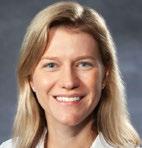
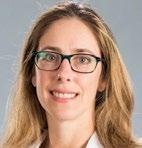
Infectious Neuropathies / Aimee K. Boegle, MD, PhD, and Pushpa Narayanaswami, MBBS, MD, FAAN
Toxic Neuropathies / Brendan L. McNeish, MD, and Noah Kolb, MD
Nutritional Neuropathies / Neeraj Kumar, MD
Paraproteinemic Neuropathies / Said Beydoun, MD, FAAN, and Leila Darki, MD
Hereditary Neuropathies / Leslie H. Hayes, MD, and Reza Sadjadi, MD
Amyotrophic Lateral Sclerosis and Other Motor Neuron Diseases / Aaron Izenberg, MD
Spinal Muscular Atrophy / Maryam Oskoui, MD, FAAN, and Laurent Servais, MD, PhD
Multidisciplinary Clinics in Neuromuscular Medicine / Kelly Gwathmey, MD, and Terry D. Heiman-Patterson, MD
The issue includes a postreading self-assessment and test with the opportunity to earn up to 20 AMA PRA Category 1 Credits™ toward Self-assessment CME.
AAN members pay only $399 per year for a subscription to Continuum and Continuum® Audio. Subscribe now by contacting Wolters Kluwer at (800) 361-0633 or (301) 223-2300 (international) or visit shop.lww.com/continuum. AAN Junior members who are transitioning to neurologist memberships are eligible to receive a 60-percent discount on the already low member rate for the Continuum and Continuum Audio subscription.
6 A ANnews • October 2023 EDUCATION
Schuyler
Gwathmey
Deadline Approaching to Complete 2023 Continuous Certification Requirements
UCNS diplomates should complete their 2023 continuous certification (C-cert) activities by no later than December 1. UCNS certification is contingent on completion of the annual C-cert requirements, which provide diplomates with a relevant, effective, timely, and convenient way to meet the needs of lifelong learning and self-assessment.
Diplomates can earn up to 15 ABPN SA credits in addition to up to 15 AMA PRA Category 1 CreditsTM for meeting the 2023 UCNS C-cert requirements. The total credits earned are based on the actual time spent completing the 2023
MEMBERSHIP
C-cert activities, up to a maximum of 15 credit hours contingent on passing the C-cert quiz.
The American Board of Psychiatry and Neurology (ABPN) approved the 2023 C-cert program as a part of a comprehensive self-assessment (SA) program, which is mandated by the American Board of Medical Specialties as a necessary component of maintenance of certification.
November 2 Is Deadline to Apply for 2024–2025 Health Care Equity Program
Applications are now being accepted for the 2024-2025 AAN Health Care Equity Program until November 2, 2023. This multi-faceted program is designed to guide participants in the understanding of health care disparities and provide them with tools and resources they can put into action to develop a project or initiative to identify and/or address health care disparities at their institution(s). The 2024–2025 program will kick off at the 2024 Annual Meeting in Denver, CO, April 13–18, and will meet virtually each month until graduation in March 2025. Selected cohort participants will receive complimentary 2024 Annual Meeting registration, a $1,000 award, and a certificate of recognition from the AAN. Visit AAN.com/research/health-careequity-program for eligibility and application requirements, and to apply by the November 2 deadline. Contact Leah Wallgren, Diversity, Equity & Inclusion Administrator, at lwallgren @ aan.com with questions.
Congratulations to the 2023–2024 Health Care Equity Program Participants!
The projects and initiatives developed by the 2023–2024 Health Care Equity Program participants include: optimizing the care received by patients with intellectual or developmental disabilities during emergency room visits; working with the local prison systems—as a start—to evaluate their ability to access subspecialty neurologic care; and creating a cohort of patients with epilepsy/ seizures in the Washington University School of Medicine College of Health clinic and identifying cohort members as underserved and/or underrepresented using social determinants of health variables. Participants are:
Maria Jose Bruzzone Giraldez, MD


Frank Conyers, MD, MPP
Rachelle Dugue, MD, PhD
Parneet Grewal, MD
Uma Menon, MD, MBA, FAAN
Shawna Scully, DO
Ann VanDeWalle Jones, MD
Jonathan Williams, MD
The 2023-2024 Health Care Equity Program is supported in part by:
A ANnews • October 2023 7
Visit UCNS.org/C-cert for more information or contact Bryan Hagerla, Continuous Certification Manager, at bhagerla @ ucns.org or (612) 928-6326.
Meet Your New Board Member: José H. Posas, MD, FAAN
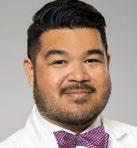
José H. Posas, MD, FAAN, is a sports neurologist at Ochsner Health in New Orleans, LA. He serves as the Ochsner Neurology Residency program director, the Neurology Department chief diversity officer, as well as serving on the Ochsner Health Physician Diversity Council. He is assistant clinical professor of the Ochsner Clinical School/University of Queensland Medical School program. How did you initially get involved as a volunteer member for the AAN?
I was introduced to AAN initiatives by my program director at the time, Richard Isaacson, and my chair, Ralph Sacco. They were mentors and role models, and really instilled in me the sense that volunteerism with the AAN is a way to give back to the community of patients we served. I've been able to carry this thought as a guiding principle as my involvement with the AAN has grown over time. I’ve seen over time that it's not just about serving patients, but has been a wonderful way for me to connect and serve with other neurologists at various points of their career trajectory and get to know my colleagues on a deeper level.
Why did you wish to be on the Board of Directors?
I applied to the AAN Board of Directors at the advice of a mentor/friend/colleague and chair of my department, Rich Zweifler. It was not something I even dreamed of, but I will say that from the specific topics that I am passionate about and that he and others identified in me and helped me develop were guiding principles. I also think that the mentorship/friendship of Vernon Williams, Jeff Kutcher, Dan Larriviere, Ihtsham Haq, Glen Finney, and Ann Tilton have been instrumental in seeing myself in a position to usher in meaningful change. My
father, Hernan Posas, who is a general neurologist, has also been talking to me since adolescence about the disadvantaged rural, Black, and Latino/a patients he has served in his community for decades now, and that has made a lasting impact. These relationships have been the mirrors that I have used to self-analyze and see where my values lie and what matters deeply to me as a neurologist.
What experiences and viewpoints do you bring to this role?
I am passionate about reducing health care disparities, recruiting diverse future neurologists, and meaningful use of innovation to usher in a brighter future for our patients and ourselves as neurologists. Having had experience as clerkship director, associate program director, and now program director through a time of tremendous change and difficulty for all of us, and especially those in training, I see the need for keeping sight of neurologists from all backgrounds and assessing their needs and being a source of support and community for us as well. As a sports neurologist, one of the main tenets of my training was keeping healthy exercise as part of brain health throughout the lifetime, so I am hopeful to be able to align and support the larger missions of the AAN as an organization in this way.
Jump-start Your Job Search at This Month’s Neurology Virtual Career Fair
Whether you’re a resident or fellow seeking your first job out of training or a seasoned mid-career professional looking to make a savvy career move, this month’s Virtual Career Fair is for you. Hosted by the AAN Neurology Career Center, the Virtual Career Fair is your free ticket to some of the best opportunities to research and meet dozens of employers without leaving home, useful resources to help with prioritization and time management, and other tools and tips to help launch or jump-start your job search.
Scheduled for Wednesday, October 25, from 12:00 p.m. to 3:00 p.m. ET, and Thursday, October 26, from 4:00 p.m. to 6:00 p.m. ET, the Virtual Career Fair will feature up to 40 employers offering approximately 100 opportunities nationwide along with opportunities for free, private, same-day initial interviews via video conference. While not intended as a replacement for the on-site interview experience, the Virtual Career Fair allows the busy physician to conduct preliminary interviews and explore opportunities without having to travel,
thus expediting the job-seeking process and, ultimately, transitioning participants from candidate to new hire during a much shorter timeline.
Candidates are encouraged to participate in the Virtual Career Fair at their convenience—whether for 15 minutes or the full four hours. Learn more by visiting Careers.AAN.com and selecting the “Events” page.
MEMBERSHIP
Looking to Hire? This Event Is Also for You! Visit Employers.AAN.com to browse advertising options with the world's largest neurology-focused career resource—and find out how you can advertise your open position during the Neurology Virtual Career Fair!
Posas
'Bold and Unapologetic': How Foundation Became Pillar of Neurology Research, Education continued from
cover
Only a year after it was formed, the Foundation had exceeded its initial fundraising goals with more than $600,000 from Academy and Foundation board members, corporations, and individuals. The Cornerstone Endowment Fund was established, and a total of more than $100,000 in leadership contributions was received from AAN membership.
Through these initial steps, the Foundation continued to build the scientific base of neurology, funding the most promising research at the highest possible dollar levels. In 1996, the Foundation Board of Trustees introduced 12 new research awards totaling $920,000. By 2007 the Foundation had raised $15,628,171—most significantly to support clinical research fellowships for promising young investigators.
Diverse Giving Opens the Doors for Research
Rosenberg, along with Rowland and Board Member
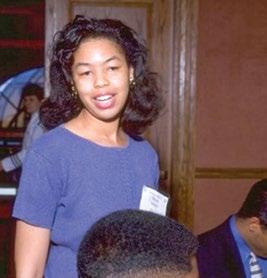
Francis I. Kittredge, Jr., JD, MD, FAAN, began talks about a fundraising body to seed fellowships and research grants. In late 1989, the Academy Executive Board convened a fundraising task force, chaired by Kittredge. The group’s goal was to recommend a tactical plan to raise research and education dollars to strengthen the profession and achieve the AAN’s goals. The task force members included Rosenberg; Steven P. Ringel, MD, FAAN; Stanley B. Prusiner, MD, FAAN; Jasper R. Daube, MD, FAAN; and Lawrence Jacobs, MD. According to Rowland, the Foundation was the right idea at the right time. “Fran and Roger got together and decided that we needed a Foundation. I was president of the Academy and saw that they had the right idea,” said Rowland. “The opportunity was there—Roger had the idea, and Fran the business acumen to make it happen. Their collective vision was the driving force for the birth of the Foundation.”
Within two years, the group put forth a plan to create the American Academy of Neurology Education and Research Foundation—later shortened to the AAN Foundation. Their overall vision for the new nonprofit organization was simple: it would work to improve patient care by providing financial support for neurologic education and research programs. Founded in 1993, the Foundation leadership included a 15-member Board of Trustees. The Foundation defined its mission to improve patient care through increased funding for neuroscience education and research. A strategic plan was developed, staff were hired, and fundraising goals were set.
Throughout the 1990s and early 2000s, the Foundation expanded avenues for giving. The Neurology Heritage Society enabled contributors to give through their estate plan and leave a legacy that reflects their values and passions. The first legacy donation was generously contributed by former Foundation Chair Kenneth M. Viste, Jr., MD, FAAN. Upon his untimely passing in August 2005, his estate gifted nearly $63,000 to the Foundation. Said his wife Jan, “Just as he wanted to make sure that his family was taken care of if he was not with us, he also wanted to do what he could for the AAN Foundation. His profession and the people he worked with—and the patients he worked for—had given him so much. This was his way to give something back.”
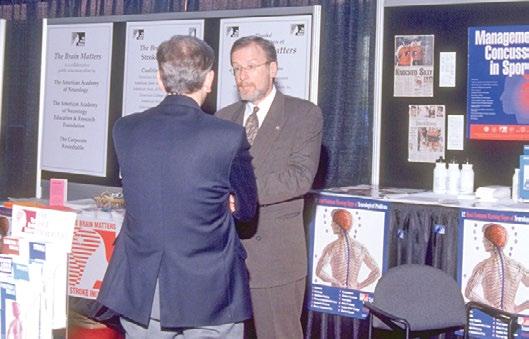
The Foundation also hosted several “salons” that recognized “giants of neurology” for their accomplishments. Attendees made donations in honor of leaders such as Milton Alter, MD, PhD, FAAN; Raymond D. Adams, MD; Francis Forster, MD, FAAN; William R. Kennedy, MD, FAAN; and Robert Katzman, MD, FAAN. These named funds enabled donors to pay tribute to those who had made great strides in neurology.
Foundation Partnerships Blossom with Corporate Roundtable
The AAN Corporate Roundtable was initiated with 19 founding members to foster dialogue between Academy members and corporations involved in the neurosciences. Participants included institutional and corporate sponsors that supported Academy and Foundation projects without reciprocal obligation.
The Corporate Roundtable, which is now under the AAN’s umbrella rather than the Foundation’s, helped jump start fellowships to support researchers in a variety of fields, including Alzheimer’s, spinal muscular atrophy, ALS, Parkinson’s, and MS, and led to fruitful partnerships with volunteer health organizations.
A ANnews • October 2023 9
AAN President Steven P. Ringel, MD, FAAN, was interviewed during the 1998 Annual Meeting in Minneapolis.
10
Zakiya J. Wynn, MD, Aventis Pharmaceuticals Minority Scholar Award recipient, 1998 Annual Meeting
Continued on page
›
'Bold and Unapologetic': How Foundation Became Pillar of Neurology Research, Education
continued from page 9
Several of the Academy’s early endeavors to attract more participation of underrepresented researchers into neurology were underwritten by members of the Corporate Roundtable, including the Marion Merrell Dow Scholars Program and the Aventis Pharmaceuticals Minority Scholar Award.
Public Awareness Becomes a Major Component of Fundraising
Building public awareness and understanding of neurology has been crucial to the growth and advancement of neurology. In 1996, the Foundation initiated The Brain Matters, a collaborative education campaign between the Academy and the Corporate Roundtable promoting the importance of the brain and its functions to the public. It evolved into an education tool for newly diagnosed patients.
Support from Academy membership also played a crucial part of the Foundation’s future success with the public. During his tenure as president, Rowland challenged the Academy membership in his 1996 appeal: “Supporting the Education and Research Foundation should be a basic research and development investment for all neurologists. Any business has to put money back into the firm to build for the future. Neurology is no different. Besides, if we do not give ourselves, how can we expect others to contribute?” Public outreach continues to be a vital component in the Foundation’s efforts to raise support for neurologic research.
More recently, during the COVID-19 pandemic, the Foundation began a monthly webinar series on issues in brain disease research, featuring AAN members such as Frances E. Jensen, MD, FAAN; David W. Dodick, MD, FAAN; Ronald C. Petersen, PhD, MD, FAAN; Joseph I. Sirven, MD, FAAN; Lisa M. Shulman, MD, FAAN; Jacqueline French, MD, FAAN; and James C. Grotta, MD, FAAN.
Fellowships Seed Discovery, Identify Rising Stars

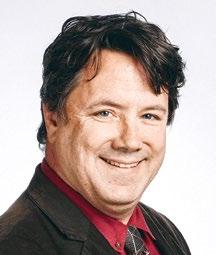
The first Foundation-funded Clinical Research Training Fellowship was awarded in 1996 to Merit E. Cudkowicz, MD, MSC, FAAN. Cudkowicz’s interests in neurodegenerative disorders proved fruitful, and today she continues her ground-breaking work at Massachusetts General Hospital as neurologist; clinical researcher; chief of the neurology department; and director for the Sean M. Healey & AMG Center for ALS, as well as director and the Julieanne Dorn Professor of Neurology at Harvard Medical School. She also sits on the Foundation’s

Board of Directors. Fellowships can launch recipients’ career in research by offering real opportunities for success. Past Clinical Research Training Fellowship recipients have gone on to receive R or K awards. The achievements of these bright individuals are underscored by the fact that 100 percent of the recipients from 1999 to 2004 received an academic appointment and were strengthening the profession.
“In many ways, the Clinical Research Training Fellowship served as the Foundation of my K-award and paved the current path of my research career,” said Bradford B. Worrall, MD, MSc, FAAN, a 1999 recipient. “Last year [2007], the AAN honored me with the Michael S. Pessin Stroke Leadership Award, for my translational research in the realm of stroke genetics. The fellowship was absolutely the critical event that launched my career as a clinician researcher.” Today, Worrall is associate professor at the University of Virginia Health System.
“As with many recipients, the fellowship gave me the opportunity to conduct and develop a research plan with protected time,” said John D. Hixson, MD, a 2006 recipient. “Commonly, after residency, a physician has not yet developed a sound research base and requires a dedicated effort to establish a research focus. The two-year fellowship is an ideal way to pursue this effort.” Hixson now is a faculty member in the department of neurology at both University of California-San Francisco and the San Francisco VA Medical Center, primarily treating epilepsy patients and developing several projects exploring the use of mobile health applications to improve the longitudinal care of patients with chronic disease.
In 2007, a practice fellowship was established to support training in clinical practice research that evaluates translation of evidence into best clinical practice. The fellowship was intended to help practitioners evaluate health services, quality of care, implementation of proven therapies, physician performance, or patient adherence. “We’ve moved from raising support to advance the science—to funding fellowships on how to best implement these latest discoveries,” said S. Claiborne Johnston, MD, PhD, then chair of the Clinical Research Subcommittee. Johnston, a member of the AAN Foundation
MEMBERSHIP
Merit E. Cudkowicz, MD, MSC, FAAN
Bradford B. Worrall, MD, MSc, FAAN
John D. Hixson, MD
Research Council, pushed to establish the practice fellowship to generate the research needed to improve the quality of neurological care. “We’ve always put patients at the forefront of our mission, and the Practice Fellowship helps bring the Foundation’s goals full circle.”
AAN Foundation Becomes the American Brain Foundation
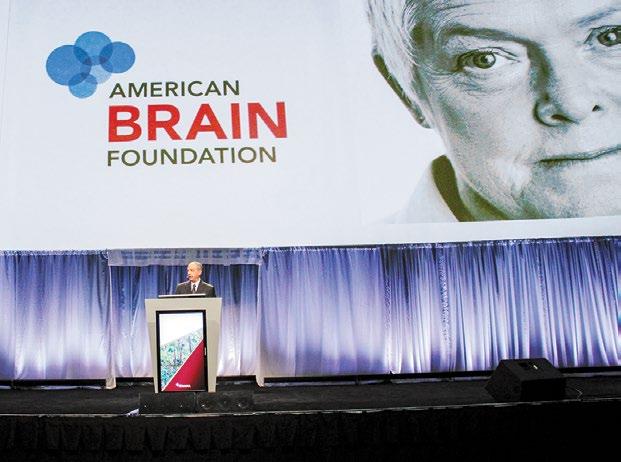
In April 2012, in the wake of celebrating its 20th anniversary, the American Academy of Neurology Foundation became the American Brain Foundation (ABF) with the goal of becoming the world’s leader in raising money for research to cure brain disease. The official rebranding was announced by ABF Chair John C. Mazziotta, MD, PhD, FAAN, during the Presidential Plenary Session at the AAN Annual Meeting in New Orleans.
“The AAN Foundation has had phenomenal success supporting clinical research training fellowships, and now the time to become the American Brain Foundation is right, and the organization is poised to greatly amplify its influence, impact, and recognition around the world,” said Mazziotta.
“We’re in a perfect storm,” he continued. “We’ve got vast research potential for finding new treatments, but little funding to support it. But it is also a perfect opportunity: in the face of flat funding, we have these tremendous treatments on the horizon, a more knowledgeable and concerned public, and tens of thousands of compassionate AAN members who know
firsthand the daily tragedies of brain disease and the desperate desires of their patients, families, and caregivers for real cures.”
Added Mazziotta, “It’s bold and it’s unapologetic, and that’s exactly where we intend to take this organization as it becomes a household name. Think of the American Brain Foundation as the final assault on brain disease. After all, wouldn’t you rather give your patients a cure than a diagnosis?”
A Public-facing Foundation
The rebranding of the Foundation went hand in hand with the growing realization that patients and their caregivers, friends, and loved ones are an enormous potential source of donations for brain disease research. With the support of both the AAN and ABF Boards, the ABF began to focus more of its marketing and fundraising efforts toward the public and had an equal number of neurologist and non-neurologist donors by 2022.
In the same year, ABF funded 29 Next Generation Research Grants, 18 of which were for new research projects from promising early-career researchers. With donor support, these grants sustain innovative investigations from the next generation of clinical neuroscience researchers, laying the groundwork for new discoveries and advancements in diagnosis and treatment. Recipients are researching a wide range of brain diseases, including ALS, epilepsy, stroke, multiple sclerosis, Parkinson’s, Alzheimer’s, Lewy body dementia, and many others.
With the new emphasis on raising public support, the ABF’s Board composition changed, too. In 2015, Kevin Goodno became the first non-neurologist Board chair. Today, 50 percent of ABF Board members are neurologists and 50 percent are non-neurologists.
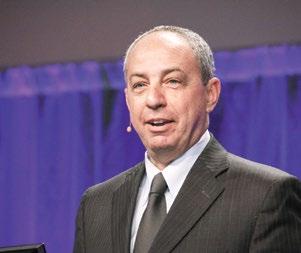
The ABF’s Commitment to Cures gala, an annual celebration that takes place during the AAN Annual Meeting, raised over $565,000 in 2023 in Boston. The evening was packed with special entertainment and inspiring stories from advocates and researchers who are working toward the cures of tomorrow.
Between 2016 and 2023, the ABF has enjoyed remarkable success. It has the highest ratings a non-profit can achieve; has raised more than $50 million for research; launched a Cure One, Cure Many initiative; developed a board of directors composed of some of the country’s leading neuroscientists and a diverse group of highly accomplished public members; and established partnerships with leading professional subspecialty societies in neurology and other charitable organizations. The overwhelming majority of the funds raised by the ABF have been granted to or earmarked for the AAN’s research program.
A ANnews • October 2023 11
John C. Mazziotta, MD, PhD, FAAN
Continued on page 12 ›
Announcement of the Foundation rebranding, 2012 AAN Annual Meeting.
'Bold and Unapologetic': How Foundation Became Pillar of Neurology Research, Education
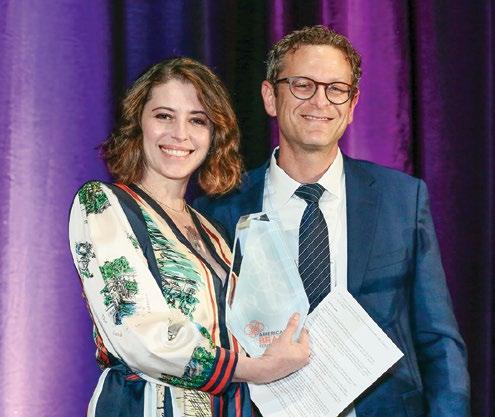
continued from page 11
Harnessing Star Power to Support Research
As Mazziotta alluded to, celebrities can help put a spotlight on brain disease, often experienced by loved ones or themselves. The ABF has bestowed its Public Leadership in Neurology Award on luminaries who have been staunch advocates for neurologic research, including actor Julie Andrews; publisher Arianna Huffington; former NASA astronaut Rich Clifford; journalist Sanjay Gupta, MD; Super Bowl champion and brain health advocate Ben Utecht; artist/advocate and widow of comedian Robin Williams, Susan Schneider Williams; and comedian Seth Rogen and his wife, writer Lauren Miller Rogen. In 2015, former US Vice President Walter F. Mondale, who shared Minnesota roots with the AAN and the ABF, received the Public Leadership in Neurology Award and was named honorary chairman of the ABF.
Looking into the Future
Today, the ABF’s mission is to accelerate breakthrough research across all brain diseases and optimize brain health for all. The Foundation is passionate about its mission and believes that its vision of Life Without Brain Disease can be attained. Its motto is “Cure One, Cure Many.” Driven by the certainty that brain diseases are interconnected, the ABF invests research on mechanisms shared by multiple brain diseases and conditions, setting the stage for new treatments for diseases that were previously untreatable to emerge. The ABF’s enduring research partnership with the AAN assures that the best and brightest researchers receive funding.
“The ABF continues to raise funding for the AAN’s research program, and the AAN continues to administer research grants with dollars raised by the ABF,” said Chief Executive Officer
Mary E. Post, MBA, CAE. “The AAN will continue to promote the ABF as its charity of choice to AAN members and the public.”
Moving forward, the ABF looks forward to further developing its “Cure One, Cure Many” interdisciplinary research approach and growing its Next Generation Grant Program for funding clinical research training scholarships.
In 2022, the ABF launched a $5 million initiative to find a biomarker for Lewy body dementia with the support of the Alzheimer’s Association and the Michael J. Fox Foundation. Now it is preparing to launch the first phase of a $10 million initiative in neuroinflammation, supported by research partners and funders from industry, academia, and patient advocacy organizations.
Through more than 30 years, the Foundation has successfully brought Rosenberg and Kittredge’s vision to fruition by raising and delivering much needed support to young neuroscientists dedicated to finding cures for brain disease.
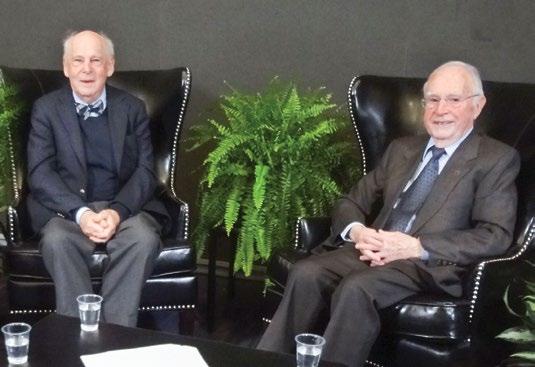
12 A ANnews • October 2023 MEMBERSHIP
Lauren Miller Rogen accepts the 2022 Public Leadership in Neurology Award from Richard S. Isaacson, MD, FAAN.
Roger N. Rosenberg, MD, FAAN, and Francis I. Kittredge, Jr., JD, MD, FAAN, were interviewed in 2017 about the launch of the AAN Foundation.
Diversity Leadership Program Graduate Selected Among New Obama Foundation Leaders
AAN Diversity Leadership Program graduate Nicte Itzel Mejia Gonzalez, MD, MPH, FAAN, was recently selected from a highly competitive pool of applicants to participate in the Obama Foundation’s inaugural 2023-2024 Leaders USA program. Mejia will join a cohort of 100 US-based, values-driven, 24- to 45-year-old changemakers hailing from 37 states; Washington, DC; American Samoa; Guam; and five tribal nations.
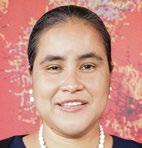
United by their passion for building a stronger, more sustainable, and more inclusive world, the cohort will convene virtually each week throughout the six-month program to learn new skills and tools for accelerating positive and lasting systems-level change in their communities with a focus on strengthening institutions across sectors toward a more inclusive, participatory culture of democracy. Sessions will be designed to help them drive change by honing their leadership skills, building deep relationships with their peers, and engaging with thought leaders and members of the Obama Foundation community, including former President Barack Obama.
Mejia was selected to the Leaders USA program for her impressive leadership accomplishments fostering educational and economic mobility of youth from marginalized communities across her home state of Massachusetts, where she is the new associate professor of neurology at Harvard Medical School and associate neurologist and director of Neurology Community Health Diversity and Inclusion at Massachusetts General Hospital. In her role as director of Massachusetts General Hospital’s Youth Neurology Education and Research Program—an initiative born out of her project work in the AAN’s Diversity Leadership Program—she engages youth from communities underrepresented in neurology by providing female, Black, Latino, American Indian, and first-generation youth across Massachusetts exposure to leading neurologists and neuroscientists from diverse backgrounds; paid opportunities to engage in mentored educational and research activities; and structured support to translate contributions into publications, presentations, and awards that facilitate the academic advancement of participating youth. “We now have over 100 alumni who have engaged in paid mentored neurology experiences and continue to participate in longitudinal mentorship,” said Mejia.
While Mejia has long held a passion for advancing equity and justice through community-engaged partnerships, she is quick to recognize the influence and impact the AAN’s Diversity Leadership Program has played in her successes; particularly praising its unmatched personalized coaching and mentoring. “The program was transformational,” she said. “I really appreciated engaging in professional coaching led by
AAN LEADERSHIP DEVELOPMENT
Dr. Joanne Smikle alongside a phenomenal cohort of neurology leaders from across the United States. I have very fond memories of my meetings with Dr. Smikle, who is a very effective coach full of knowledge, honest reflection, encouragement, and love. I also grew through developing an equity-focused project alongside other program participants, who continue to inspire me as they make our field and world better every day. This program helped me better understand how I could shape my career around what I truly value.”
in part by:
AbbVie
Alexion
argenx
AstraZeneca Rare Disease
Bristol Myers Squibb
Cerevel Therapeutics
Eisai, Inc.
Genentech, a Member of the Roche Group
Harmony Biosciences
Horizon Therapeutics
Lilly
Supernus Pharmaceuticals, Inc.
A ANnews • October 2023 13
The 2022–2023 Diversity Leadership Program was supported
Mejia
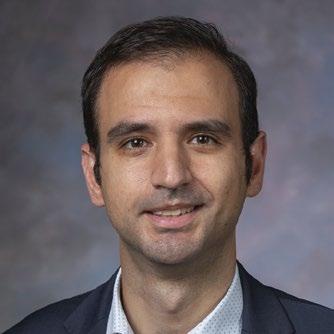 Stefan Nicolau, MD, Research Fellow
Nationwide Children’s Hospital
Stefan Nicolau, MD, Research Fellow
Nationwide Children’s Hospital



































 Stefan Nicolau, MD, Research Fellow
Nationwide Children’s Hospital
Stefan Nicolau, MD, Research Fellow
Nationwide Children’s Hospital